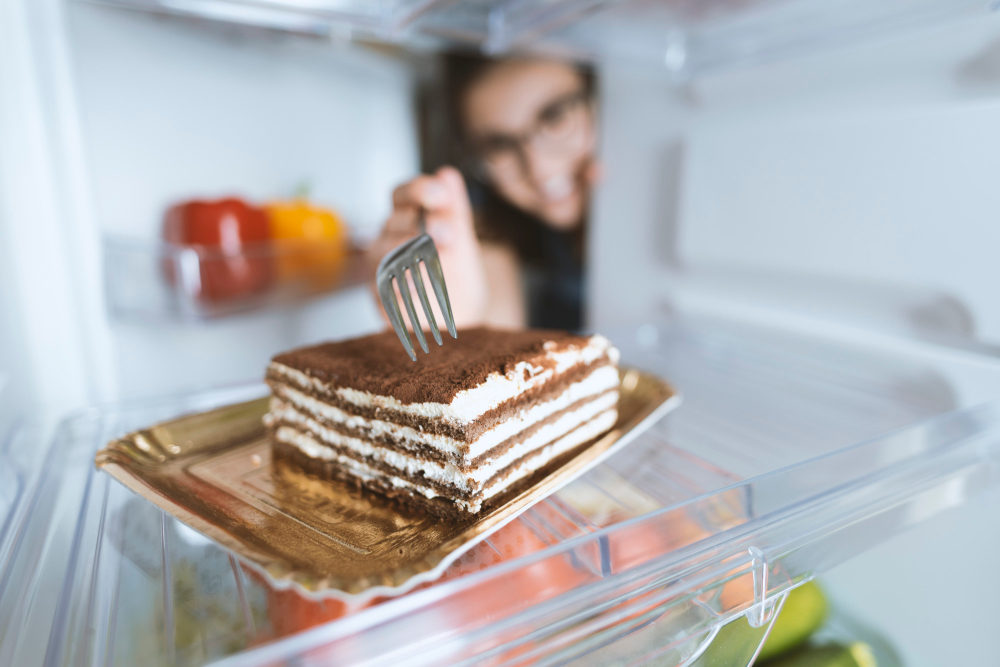
Gluten is tempting, addictive, and incredibly hard to give up. This is why many people who need to be gluten-free still eat gluten. In this article, I explain the consequences of cheating on your gluten-free diet and how doing so may cause more harm than you realize. This article contains affiliate links. Please see my disclosures.
Getting diagnosed with a gluten disorder, such as celiac disease (coeliac disease), non-celiac gluten sensitivity, gluten intolerance, or wheat allergy, can feel [literally] like a punch in the gut.
Once diagnosed, you must immediately give up foods containing gluten, a sticky protein found in wheat, rye, and barley. Gluten is the “glue” that holds baked goods together, and it’s found in many beloved foods, including pizza, pasta, and bread.
Sadly, after decades of research and clinical trials, the only treatment option for celiac disease remains a lifelong, strict gluten-free diet.

Gluten-Free Isn’t Easy
Unfortunately, following a stringent gluten-free diet isn’t a simple lifestyle change. Gluten is found in many packaged foods and foods you’re used to eating daily. It’s in salad dressings, spice blends, licorice, and beer. It goes by innocuous names like yeast extract and natural flavors.
Following a strict gluten-free diet is challenging if you like to eat at restaurants or travel. If you’re looking to attend college or need to go into a nursing home or hospital, ensuring you get gluten-free food at all times feels like an impossible chore.
On top of it all, being on a strict gluten-free diet can take its toll on your mental health. There is a high emotional burden to a gluten-free diet. People often feel ridiculed for being gluten-free. And they’re often dismissed as high-maintenance for asking for safe food at restaurants, social gatherings, cruises, airlines, and more. That’s why companies like Celiac Cruise offer special cruises just for gluten-challenged travelers.
I’ve been gluten-free for more than a decade, and while the gluten-free lifestyle gets easier with time, it’s never easy. I’m constantly reminded of my disability wherever I go, and it affects me more than I’d like to admit. It doesn’t surprise me that 20-50% of celiac patients are not fully compliant with a gluten-free diet!
The struggle is real, and that’s why so many people resort to “cheating” on their gluten-free diet.
What Does Cheating Look Like?
Cheating on a gluten-free diet comes in many forms. Some cheating is purposeful; some is not. Some cheat out of ignorance.
Here is some of the language I hear from my fellow gluten-free warriors that show me they “cheat” on their gluten-free diet:
I’m just gluten intolerant, not celiac. I can eat just a little gluten, and fries cooked in a shared fryer don’t bother me.
I’m on a low-gluten diet. I avoid gluten, but I’m not militant about it.
I have celiac disease but don’t get any symptoms when I eat gluten (silent celiac). So I don’t need to take my diet seriously.
I’m usually gluten-free, but since ______ (it’s my birthday, I’m traveling, it’s a special occasion, etc.), I’ll enjoy a bit of gluten.
I’ll eat the lasagna even though you cooked it with noodles made from wheat. I’ll just eat around the noodles and be fine.
This food looks gluten-free, so I’m comfortable eating it.
These are excuses or justifications that downplay the seriousness of a gluten-free diet. Some will use these excuses because they don’t want to appear to be making a fuss, and others will genuinely believe a little gluten won’t hurt them, so they’re able to justify cheating.
Remember, however, it only takes one small exposure to gluten to activate an immune system response in people with celiac disease and gluten sensitivity, according to Dr. Tom O’Bryan, a leading gluten-sensitivity doctor and author of the foreword to my book.
He goes on to say that even a little gluten can trigger antibodies to attack the immune system. In people with celiac disease, these antibodies attack the small intestine and destroy a person’s villi (known as villous atrophy). The villi surrounding the small intestine are responsible for absorbing and distributing nutrients throughout the body.
These antibodies create inflammation at a place where a person with gluten intolerance is genetically weak, which could be the thyroid, skin, brain, joints, bones, reproductive system, or other essential functions.
The Consequences of Cheating
Did you know that a strict gluten-free diet is the number one predictor of long-term health outcomes and symptom resolution?
If you cheat, expect to see one or more of the following consequences:
(1) Continued or Worsening Symptoms
If you continue to eat gluten despite needing to be on a gluten-free diet for medical reasons, chances are your symptoms will persist and may even worsen over time.
There are more than 60 symptoms of a gluten disorder, including painful bloating, embarrassing gas, diarrhea, constipation, brain fog, joint pain, itchy skin (known as dermatitis herpetiformis), chronic fatigue, acne, migraines, and more.
These symptoms may never resolve – and will likely worsen – without proper dietary interventions. Some symptoms, like dermatitis herpetiformis (pictured below), are painful and unsightly. You’ve been warned.
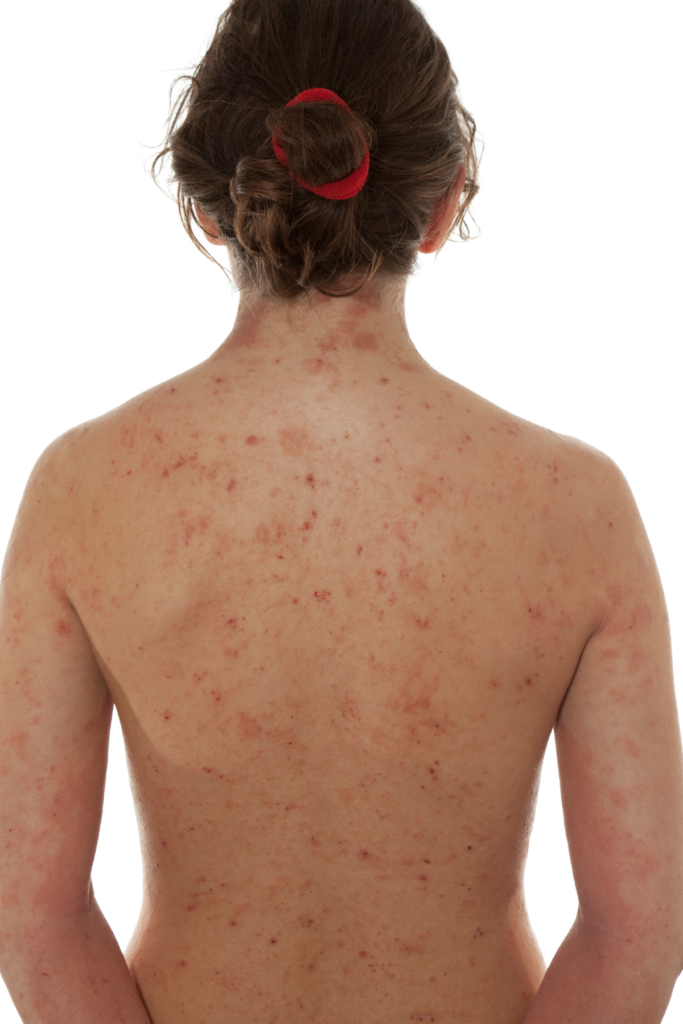
(2) Higher Risk of Early Death (Especially in Gluten Intolerance vs. Celiac)
Doing everything in your power to resolve your symptoms through a strict gluten-free diet will lead to a better quality of life, but did you know it may also help you live longer?
Here’s what some of the research says about this topic:
1. A study published in 2001 in the Lancet followed celiac patients for more than 20 years and recorded their eating patterns. Patients who ate gluten once per month, even if they didn’t feel bad after eating gluten, incurred a sixfold increase in the relative risk of death. I think that’s a high price to pay to eat wheat flour, even if only on occasion.
2. A study published in 2009 in the Journal of the American Medical Association examined 351,000 intestinal lining biopsies (46,000 on the celiac disease spectrum, 29,000 with celiac disease, 17,000 with early-stage celiac disease development, and 13,000 people with no positive bloodwork nor worn down microvilli but still had gluten sensitivity and inflammation).
The researchers found that people with celiac disease experienced a modest 39 percent increased risk of early mortality. In comparison, people with inflammation due to gluten sensitivity (not celiac) had a 72 percent increased risk of premature death!
In other words, the risk of premature death is higher in people with gluten sensitivity than celiac disease!
Researchers speculate the reason premature death is higher in people with gluten sensitivity than celiac disease is because someone with celiac disease takes their gluten-free diet more seriously than someone with gluten intolerance.
For example, someone with just gluten intolerance may be more prone to cheating on their gluten-free diet, thereby creating an environment ripe for chronic inflammation and early mortality.
(3) Increased Your Risk of Other Autoimmune Diseases
According to a study published in Gastroenterology, people with non-celiac wheat sensitivity (gluten intolerance) have double the amount of elevated levels of antinuclear antibodies than those with celiac disease. Antinuclear antibodies manifest themselves in a slew of autoimmune disorders.
This means people with gluten disorders are at high risk for attracting other autoimmune conditions.
If a person carries one of the two celiac genes, their gluten intolerance could be a precursor to celiac disease.
However, if a person doesn’t carry one of the celiac genes, gluten intolerance is more likely a precursor to other autoimmune diseases, such as lupus, rheumatoid arthritis, Sjogren’s syndrome, scleroderma, polymyositis, Hashimoto’s thyroiditis, etc. (Read: Genetic Testing for Celiac Disease.)
(4) You’ll Elevate Your Cancer Risk
A study published in the Annals of Internal Medicine found that people with celiac disease who incurred persistent intestinal damage (i.e., an unmanaged gluten-free diet) were at higher risk of lymphoma, a type of blood cancer, than celiac patients whose intestines had healed.
Another study also found an increased risk for lymphoproliferative malignancy (LPM) in celiac patients who experience persistent villous atrophy.
Such findings suggest that intestinal healing should be the ultimate goal for celiac patients, and the intestinal lining cannot heal if it’s continually inflamed and assaulted by gluten.
(5) People Won’t Take Your Diet Seriously
If you don’t take your diet seriously, how can you expect others to take it seriously? If you want people to take your diet seriously, you should take it seriously at all times. No cheating.
Also, many of my clients go strictly gluten-free, resolve their symptoms, think they’ve been “cured,” and then start eating gluten again.
The truth is, once someone with a gluten disorder starts eating gluten again, the damage will reemerge. Symptoms will start popping up here and there, and sometimes symptoms return with a vengeance due to one’s loss of oral tolerance for gluten!
(6) You’ll Undo All Your Progress
Honestly, why bother putting yourself through a strict gluten-free diet in the first place if you’re going to eat gluten from time to time? It’s not worth it. Just eat gluten.
Remember, a gluten-free diet is only effective when you follow it to a T. Even a little gluten can set back your healing by weeks, months, and even years.
7 Strategies for Sticking to Your GFD
Here are seven strategies to help you stay gluten-free compliant:
(1) Educate Yourself
If you want to be healthy and treat the only body you have with care, you must make being gluten-free a priority.
If you struggle to be fully gluten-free, I encourage you to enroll in my SIGNATURE Gluten-Free Course. You’ll learn how to go gluten-free quickly and fast-track your healing, and I’ll make sure you have the tools you need to stay gluten-free compliant at all times, even when you travel and eat out.
Learn more and enroll in my SIGNATURE Gluten-Free Course – the #1 course for people with celiac disease or gluten intolerance who are new or struggling with their gluten-free diet.
(2) Plan Your Meals
Creating a meal plan for the week can help you avoid cheating on your gluten-free diet. When you know what you’re eating and when you’re eating it, you’ll be prepared at the onset of cravings with delicious and safe whole foods.
Below are a few resources to help you with your meal-planning adventures:
- 15 Meal Planning Tips for People with Celiac Disease and Gluten Sensitivities
- My 4-Week Clean Eating Meal Plan
- 45 Gluten-Free Recipes with Sample Meal Plans
(3) Eat at Home
Try to reduce your dependence on eating out and instead enjoy most of your meals at home. Restaurant dishes notoriously contain trace amounts of gluten, and the risk of getting accidentally glutened is high when you have little to no control over how your food is prepared.
That said, I believe you should not give up eating out. Eating out is normal human behavior, and avoiding it at all costs will take a toll on your social life and mental health. That’s why you shouldn’t be afraid to eat out; you should just do so cautiously.
Download my ebook, The Ultimate Guide to Eating Out Gluten Free, which contains strategies for eating out safely on a gluten-free diet.
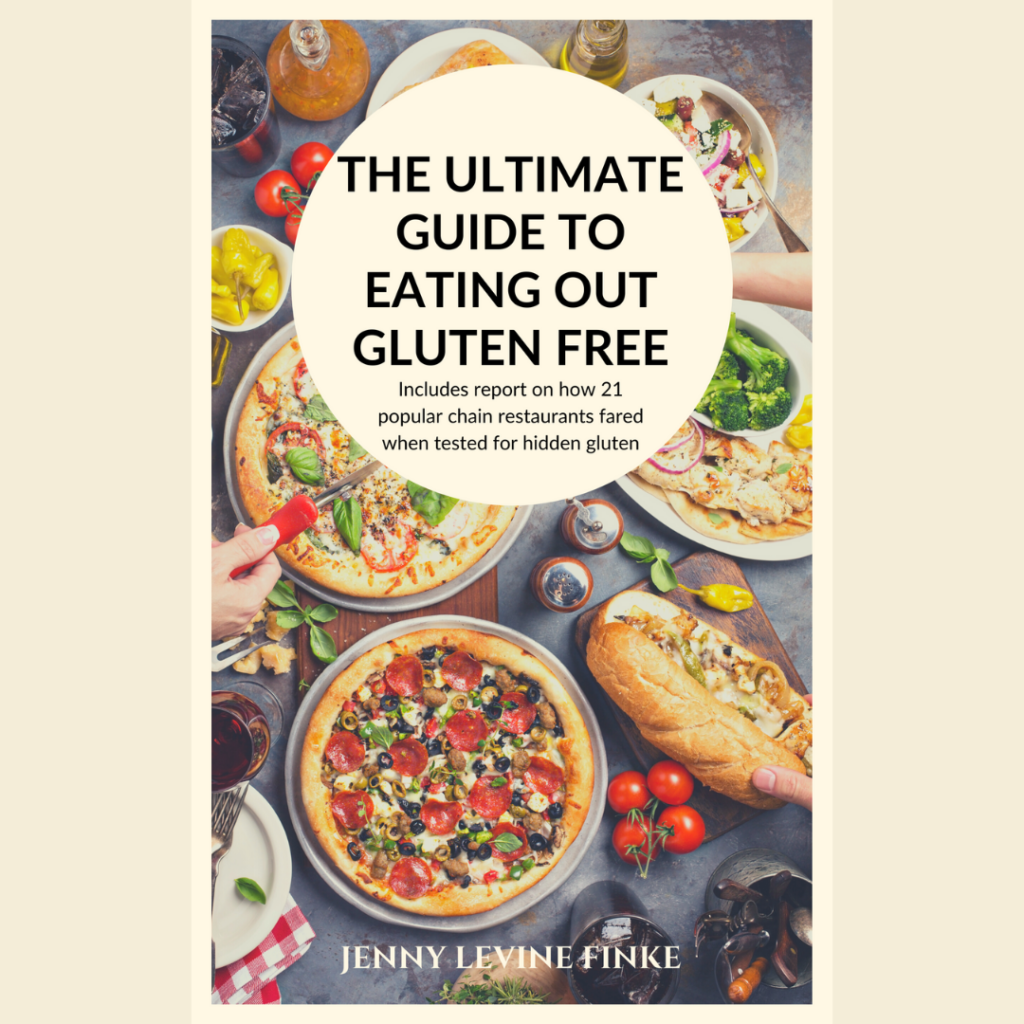
(4) Eat Well
If you experience intense cravings for gluten or other foods, it might mean you’re nutrient deficient, and your body is missing something it needs.
I recommend eating plenty of nutrient-dense, naturally gluten-free foods – including fruits and vegetables, lean meats, nuts, seeds, beans, and lentils. Also, eat plenty of fiber-rich foods to help you feel full and plenty of protein to help you feel satiated.
If you always feel tired or hungry, check your vitamin D and vitamin B levels (you can use these at-home tests to do so). You may need to supplement to boost your body’s nutrient load while your gut is healing.
Learn more about what supplements I recommend in my article, Supplements for Celiac Disease and Gluten Intolerance.
(5) Don’t Deprive Yourself
It’s easy to slip and eat gluten when you’re feeling deprived or like you’re missing out. That’s why, as important as it is to eat healthy, you must make room in your diet for foods you love, including gluten-free bread and gluten-free pasta.
I cook healthy meals for myself and my family almost every day and night, but I’ve also learned how to recreate some of my favorite foods from childhood that I miss most, including challah, pizza, Pop-Tarts, and Goldfish, to name a few. This way, I never feel like I’m missing out on something.
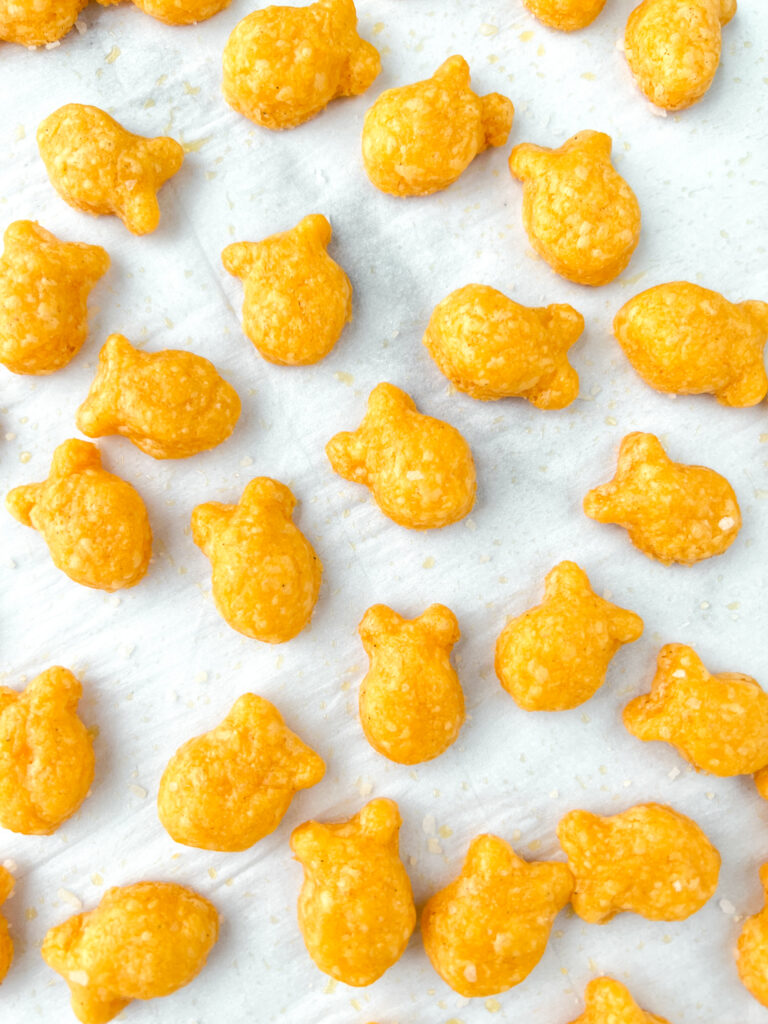
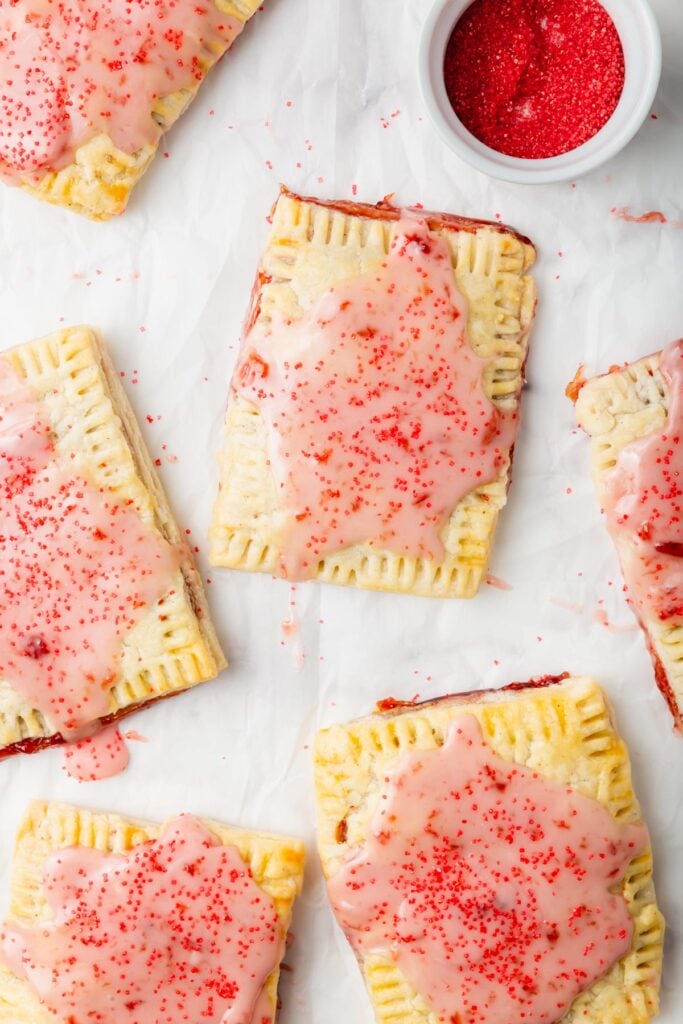
(6) Always Carry Food
It’s easy to cheat on your gluten-free diet when there are no other options available at your fingertips. That’s why it’s important to always keep healthy foods and snacks with you at all times.
I’ve got a list of 75+ of the Best Gluten-Free Snacks to consider. Many of them are portable and non-perishable.
(7) Read Food Labels Carefully
While you may not be purposefully cheating on your diet, you may instead be inadvertently “cheating” if you’re not diligently reading food labels and checking for the presence of gluten.
Get up to speed on your label-reading skills. The following resources will help you:
- What Gluten-Free Labeling Laws and Certifications Mean
- 100+ Foods That Contain Gluten (or May Contain Gluten)
- 10 Surprise Foods that Contain Hidden Gluten
- Is It Gluten-Free? Decoding 25 of the Most Confusing Ingredients and Products from Caramel Color to Yeast Extract
(8) Surround Yourself with Supportive People
Someone who cares about you and your overall health would never ask you to eat gluten or pressure you to eat at restaurants that make you uncomfortable. You can always find a gluten-free option or alternative.
Surround yourself with people (friends and family members) who understand what you’re going through and support you at all costs.
(9) Go Easy On Yourself
While I encourage you to stick to a strict gluten-free diet, it’s important that you don’t over-restrict yourself. This can lead to hypervigilance and orthorexia, a disorder where people obsess about eating a certain way.
Please read my article, Can You Be Too Gluten-Free? How to Balance Dietary Vigilance Without Losing Your Mind, for tips to balancing your need to be gluten-free with your mental health.
Cheaters Never Win
Remember, it’s essential to stay true to your gluten-free diet at all times. There’s never a vacation from being gluten-free, and you should never allow yourself a cheat day or cheat vacation.
If your symptoms persist despite being 100 percent gluten-free, consult your healthcare provider, GI doctor, physician, or registered dietitian. Having a professional support team and a personal support system will help you navigate this challenging lifestyle with ease.
Additional Reading and Information
Are you 100% gluten-free compliant? You can test your urine or stool for the presence of gluten with Gluten Detect tests. These tests are also used in clinical trials to ensure dietary adherence from test subjects.
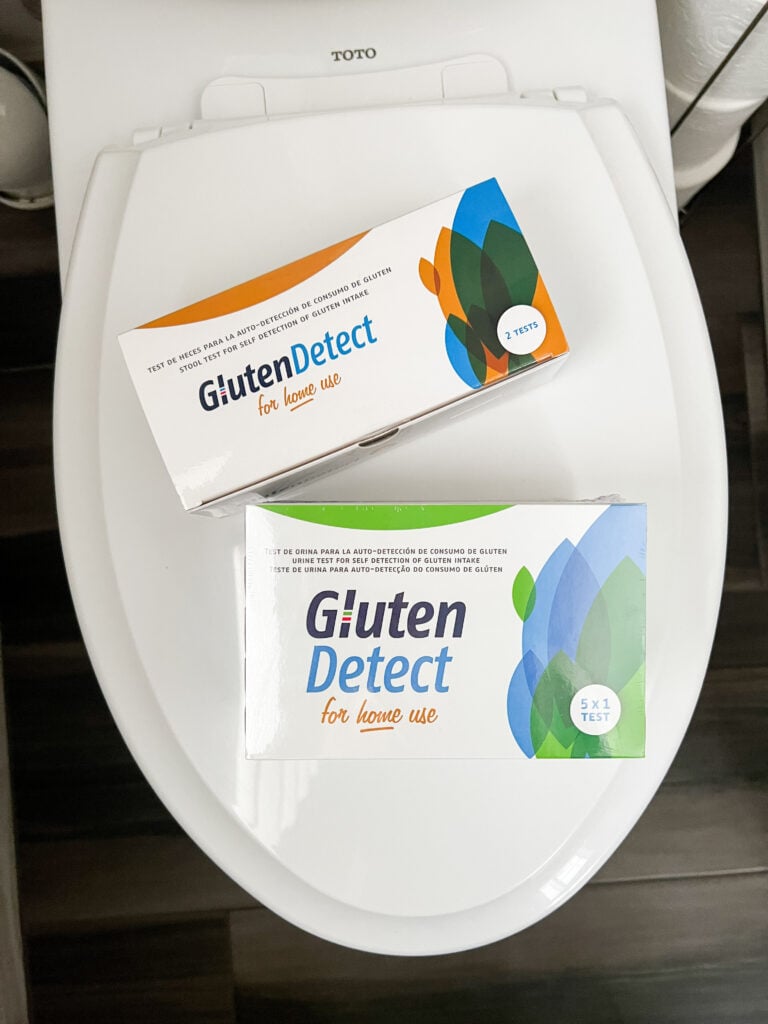
Do you have celiac disease? This simple at-home Celiac Disease Screening blood test will provide you with answers.
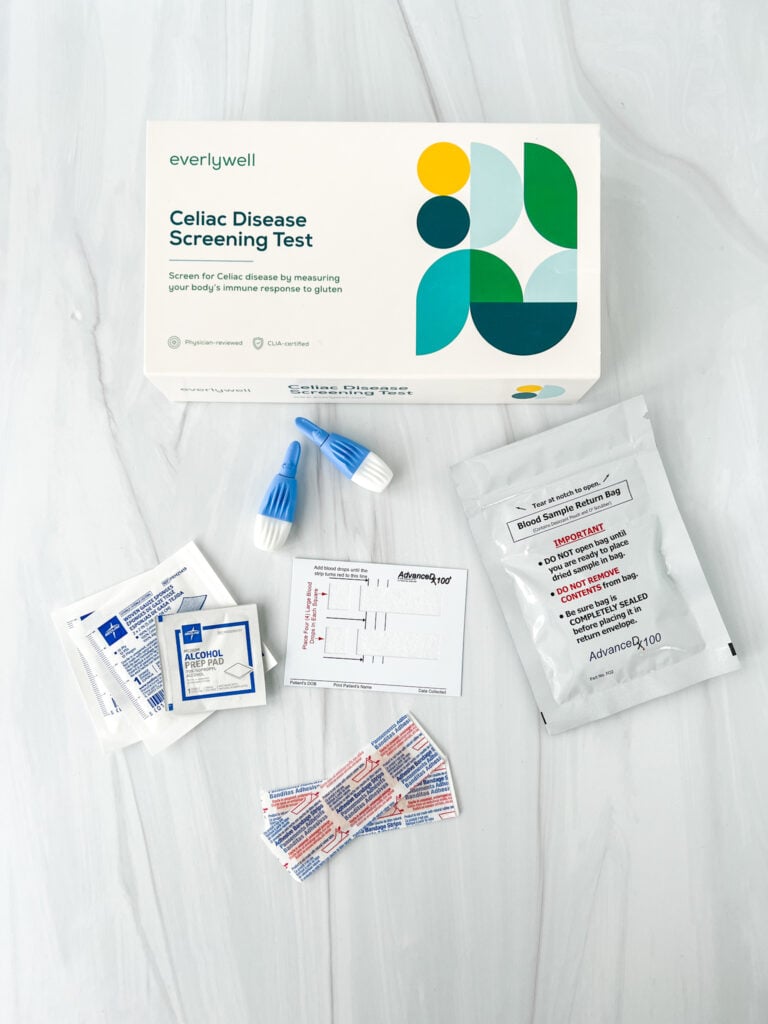
Is it a gluten sensitivity? Read my article, Do You Have Gluten Intolerance? How to Test for Non-Celiac Gluten Sensitivity.
Got celiac disease? Find out what happens to your body when you eat gluten.
Were you accidentally glutened? Read my articles, How to Quickly Recover After Accidentally Eating Gluten and Crap, I Was Glutened! How Long Does It Take Gluten to Get Out of Your System?
Being gluten-free is hard. Did you know that 20-50% of celiac patients are not fully compliant with the gluten-free diet?
I have celiac disease,it caused lesions on my brain so I never get anything other than gluten free. I can’t because I will get more lesions.
I found this article so inspiring and just what I needed today and everyday! I have been GF for 10 years with multiple ‘cheats’ and I do pay the price for it every single time. I recently had a severe Arthritis flare that lasted 12 weeks and scared me to death it would never end. My wonderful doctor said, review and renew your Anti-inflammation diet and refused medicine other than a low dose and short term medicine to get me past the worst of the flare. Since then I have gotten really serious and have researched and researched which brought me to this article! Thank You!! I had just written to a friend most of what you say in a shorter version and it was so great to get confirmation that my research had me on the right track! I am 75 years old and like you I want to live life fully and die quickly-no lingering diseases I an avoid!
No
I have had Celiac for 33 years. Your articles are on point! I grew up with 11 Italian Aunt’s off the boat! Pasta was always hanging around. When I first found out, I was like, ‘ what I’m Italian, I can’t have pasta, pizza, ECT. Believe me it has gotten much easier since then. Luckily I love to cook and bake. When I get something that is cross contaminated, oh boy! I look 9 months pregnant, I can’t go far from a bathroom, and I am miserable! The sad thing is because of the GF FAD, many restaurants don’t take it seriously in the U.S.A. I have had much better luck eating in parts of Europe. That’s sad.
I love reading your emails, and trying out some of your recipes! Keep up the good work.
So, eating “gluten free cake” is considered cheating on a gluten free diet?
Honestly thank you for writing this article. I got the email of the resend you sent out incase it was missed and read it. I have a gluten sensitivity, I found out in November 2019 and since this pandemic started its getting harder and harder to find gluten free food. So I started cheating and wasn’t taking my sensitivity seriously anymore since I didn’t have celiac disease. I really needed this reminder.
Amazing! Thank you for sharing. I’m glad you’re connecting the dots. Our bodies are intricately wired and interconnected.
Thank you so much for this information. I have a gluten sensitivity that causese to itch all over. I also have the autoimmune disease, rheumatoid arthritis. Lately, I’ve been cheating occasionally on my gluten free diet and never connected that that’s what might be causing my arthritis flares
Back on the straight and narrow for me!
So I have Celiac Disease, but for 52 years never knew it, in fact, I could almost eat wheat and never know the damage it’s causing, but with that being said, I totally plan to avoid gluten and live a gluten free lifestyle and avoid gluten items like lipstick. So, here’s where I get confused. Many makeup brands say that their makeup is fine and as long as you’re not sensitive to gluten, it doesn’t harm you or you won’t have issues. It will say that or something along the lines of “depending how sensitive you are” If there’s a mid way point of enjoying gluten why is everything gluten free…They make things confusing by insinuating otherwise.
I am a fellow Coloradan celiac, recently diagnosed and needed this article! I’m fairly certain the pizza I ordered last night was exposed to gluten and I ate it anyway. I dont get extreme symptoms, but that cant be the reason I “cheat”!!
Thank you for sharing.
Thanks for writing this article! I’m a gluten intolerant person and have been exposed to gluten through cross contamination recently and my stomach hasn’t been the same since. Peolpe don’t understand what it’s like to not be able to eat gluten. The day after Christmas, my parents, who we were visiting for the day, ordered pizza from my favorite pizza place growing up. They ordered me a salad and tried hard to get me to have a piece of pizza. They never understood why I couldn’t have it. I was just diagnosed last year at the ripe old age of 34. This article has helped me understand the importance of staying gluten free.
I’m assuming your wheat allergy isn’t life threatening? I don’t know exactly how it differs when you cheat but you should absolutely explore a strict gluten-free diet. I tested positive for a wheat allergy in addition to celiac. You are your best scientist so I encourage you to explore this further. Good luck.
I’m not ‘gluten insensitive’, but I have an actual allergy to wheat; is there a difference in outcome? Do the same risks apply to me and others like me? This is all so new, and can be very confusing.
Try the gluten free bread at Hannaford, my son loved it.
I feel your pain! Thank you for sharing.
I’m non caeliac gluten free.
Only diagnosed this year. It is difficult adjusting to the diet but it has to be done 100% to get the benefits. However, I get sick of comments like you were ok before. No. I was in pain but did not know why.
Or. People know your gluten free but don’t get you anything to suit. So cakes for everyone but me.
Or ask if I want a biscuit. No sorry gluten free. Oh there is gluten in biscuits. Yes.
Or wanting my favourite when out. A scone.
But told you can if you have an afternoon tea. I don’t want an afternoon tea. Just a scone.
You have them for non gluten free individuals. But not me. Or I can only have it if I have the full package??? Why. So you have it available but I can’t buy on it’s own.
Or that dam question. Do you have a gluten free cake. We have a brownie. Pre packaged. But all these lovely cakes you can’t have. Sorry. I hate brownies.
So come on get better choices for gluten free individuals.
I’m glad I could help Melissa. You can do this. Your health depends on it.
This is a such a great eye opener! I am non-celiac gluten sensitive, and have definitely cheated and regretted the cheat every time. This past thanksgiving was the toughest time I had, and I cheated with gluten and dairy (I’m dairy sensitive). I needed to read this and I’m so thankful that you shared it.
Thank you. I hate when people tell me they’re sort of gluten free. It just makes life for the rest of us more difficult.
Great article! My family has been gluten free for 5 years due to 2 out of 4 with celiacs. It’s sometimes hard with kids and parties, but we never give in!! I can’t stand it when people tell me there sensitive to gluten but still eat it! Ticking time bomb. It’s like putting diesel in a gasoline truck.
That’s fantastic to hear Irene. Stay GF strong. Glad you found this article helpful.
I was diagnosed with celiac 5 years ago and by now I can say I’m 100% gluten free. I never cheat because I’ll be paying the consequences. I live in Puerto Rico and have realized that there is a lack of knowledge on this condition, I feel I can help with my experience and provide some educational talks. Your article is so informative, I appreciate it very much.
My pleasure Debbie. Thank you for your encouraging words!
Wow what a great article! I couldn’t agree with you more. I am a gluten sensitive and have been gluten free for 7 years now. I agree with all you have said here. Thank you for sharing this!
Hi Meg. Glad I could help. Thank you for this feedback!!
This is a great article. I am non-celiac gluten sensitive. It is hard to find anwnsers about it a little gluten will hurt or not. Thank you!